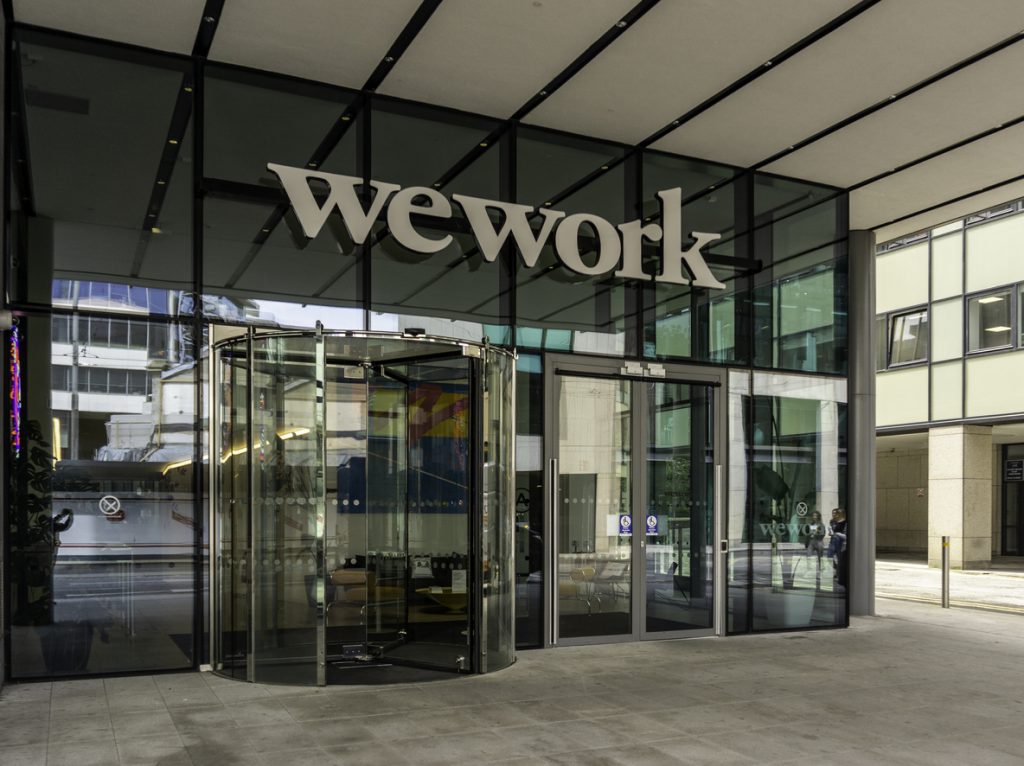
In a significant development in the world of corporate real estate, WeWork, the once-mighty office-sharing company, has officially filed for Chapter 11 bankruptcy protection. The filing, which occurred in a New Jersey federal court on a fateful Monday, reflects WeWork’s determination to confront its financial challenges head-on. The company disclosed that it had reached agreements with most of its secured noteholders and intended to reevaluate and streamline its “non-operational” leases. This strategic move by WeWork seeks to create a foundation for its recovery and future sustainability.
Restructuring Focuses on U.S. and Canada Locations
WeWork has clarified that the scope of its bankruptcy filing is primarily limited to its locations in the United States and Canada. The company, in an initial filing, reported its liabilities to be within the range of $10 billion to $50 billion. WeWork’s CEO, David Tolley, expressed his gratitude for the support received from the company’s financial stakeholders. He emphasized their collaborative efforts to strengthen WeWork’s capital structure and expedite the restructuring process through a “Restructuring Support Agreement.” Tolley underscored WeWork’s commitment to investing in its products, services, and its world-class team of employees to continue supporting its community.
A Spectacular Corporate Collapse
WeWork’s journey over the past few years has been nothing short of spectacular, albeit in the wrong direction. In 2019, the company was valued at an astounding $47 billion, led by SoftBank’s Masayoshi Son. However, WeWork’s ambitious attempt to go public five years ago failed. The COVID-19 pandemic further compounded the company’s woes as many of its clients abruptly terminated their leases due to the remote work trend. The subsequent economic downturn saw even more clients closing their doors. These challenges were foreshadowed in an August regulatory filing, where bankruptcy concerns were raised.
Stock Market Struggles
WeWork made a strategic debut on the stock market in 2021 through a special purpose acquisition company (SPAC). However, since its stock market entry, the company has experienced a staggering 98% decrease in value. To maintain its New York Stock Exchange listing, WeWork executed a 1-for-40 reverse stock split in mid-August, increasing its share price back above $1. Before the trading halt on Monday, WeWork’s shares had fallen to an astonishingly low value of about 10 cents, hovering at around 83 cents.
A Vision for Reorganization
Former co-founder and CEO, Adam Neumann, expressed his disappointment regarding WeWork’s bankruptcy filing. Neumann, observing the company’s struggles since 2019, believes that WeWork still possesses a highly relevant product. In his statement to CNBC, Neumann conveyed his faith that, with the right strategy and a dedicated team, a reorganization could pave the way for WeWork’s successful emergence from this challenging period.
Facing Lease Obligations
As recently as September, WeWork had stated that it was actively engaged in renegotiating leases and was determined to endure. The company had substantial long-term lease obligations, amounting to close to $16 billion, as documented in its securities filings. With millions of square feet of office space across 777 locations worldwide, WeWork’s restructuring efforts are set to have a substantial impact on the commercial real estate landscape.
Legal and Financial Advisors
WeWork has enlisted the services of Kirkland & Ellis and Cole Schotz as its legal advisors to navigate the Chapter 11 proceedings. PJT Partners will serve as the investment bank, with support from C Street Advisory Group and Alvarez & Marsal, ensuring that the restructuring process is handled with precision and expertise. WeWork’s journey through this critical phase will undoubtedly be closely watched by investors, clients, and industry observers as it seeks to redefine its future in the ever-evolving office-sharing landscape.
Don’t be a silent ninja! Let us know your thoughts in the comment section below.

